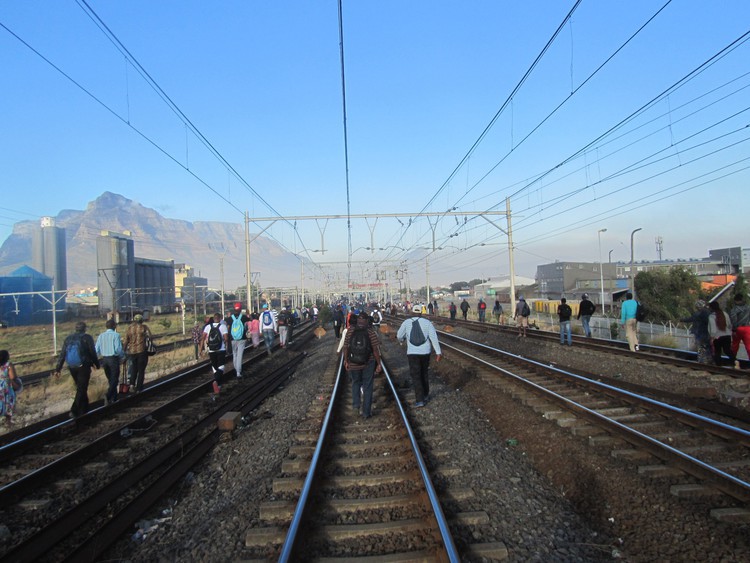City of Cape Town says progress on rail devolution is too slow
Draft National Devolution Strategy has not yet been made public
Progress on the devolution of rail services is too slow, says the City of Cape Town’s Urban Mobility Mayoral Committee Member Rob Quintas. Archive photo: Bernard Chiguvare
The national Department of Transport is dragging its heels on the devolution of rail, says Rob Quintas, head of transport in the City of Cape Town.
He says the steering committee set up by the national Department of Transport to discuss the devolution of rail to municipalities has only met once. The committee includes representatives of municipalities and provincial and national transport departments.
Quintas said the City was not satisfied with progress to date and “the lack of urgency” that the national department of transport had demonstrated. “We have never been invited to a meeting other than the initial inception meeting,” he said.
Quintas said the City was still waiting for the department’s draft National Devolution Strategy.
Spokesperson for the national department of transport, Collen Msibi, told GroundUp the draft National Devolution Strategy would be developed for public participation and “all stakeholders including the City of Cape Town be given adequate opportunity to make comments. The strategy would provide guidelines and procedures for municipalities and would ensure that there was a mechanism for financial sustainability.
“Key considerations will be taken into account to avoid mushrooming of state-owned enterprises in the rail space as a result of the devolution process,” said Msibi.
Cape Town mayor Geordin Hill-Lewis has called on President Cyril Ramaphosa to announce a clear deadline for the National Devolution Strategy report.
The National Rail Policy White Paper in 2022 first promised the delivery of a Devolution Strategy by 2023. Then in Parliament on 5 September 2023, the President promised the strategy would be concluded and approved by 2024.
Functional rail will save lower income families in Cape Town R932-million per year and sustain 51,000 jobs in the metro, according to a City of Cape Town Rail Feasibility Study.
Initially, the City said the national government’s failure to devolve rail might lead to a formal intergovernmental dispute. But Quintas this week said, “If we see commitment to urgency and working together, then no dispute will be necessary.”
Support independent journalism
Donate using Payfast

Don't miss out on the latest news
We respect your privacy, and promise we won't spam you.
Next: Dodgy multi-million rand Rio Olympics grant under investigation
Previous: My three-month battle with the Unemployment Insurance Fund
© 2024 GroundUp. This article is licensed under a Creative Commons Attribution-NoDerivatives 4.0 International License.
You may republish this article, so long as you credit the authors and GroundUp, and do not change the text. Please include a link back to the original article.
We put an invisible pixel in the article so that we can count traffic to republishers. All analytics tools are solely on our servers. We do not give our logs to any third party. Logs are deleted after two weeks. We do not use any IP address identifying information except to count regional traffic. We are solely interested in counting hits, not tracking users. If you republish, please do not delete the invisible pixel.

